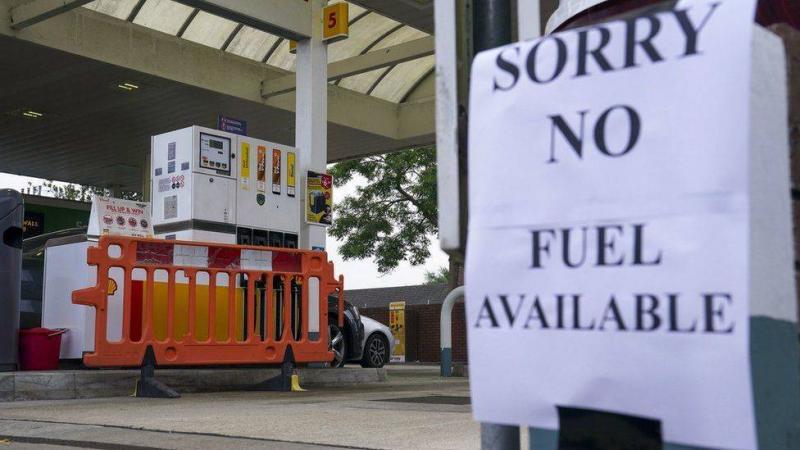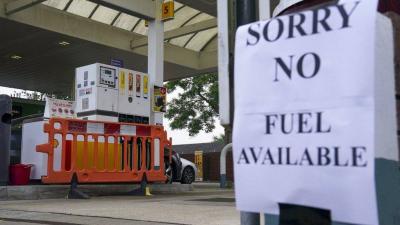On Monday, the UK placed its army on standby to assist with the ongoing fuel crisis, which has led to panic over a shortage of tanker drivers, causing many gas stations across the country to close. The Department for Business, Energy and Industrial Strategy stated in a late Monday announcement that "a limited number of military tanker drivers will be put on standby and deployed if necessary to achieve greater stability in the fuel supply chain."
Desperate drivers queued at petrol stations across Britain, leading to drained tanks, rising tension, and calls for the government to use emergency powers. The government stated that "the shortage of tanker drivers to deliver fuel and unprecedented demand is behind the crisis." Military drivers will receive specialized training before being deployed if the crisis does not resolve in the coming days. Business Minister Kwasi Kwarteng remarked, "While the fuel industry expects demand to return to normal levels in the coming days, it is prudent to take this reasonable precaution."
He added, "If necessary, deploying military personnel will provide additional capacity to the supply chain as a temporary measure to help alleviate the pressures caused by increased domestic demand for fuel." The government has already made a radical shift in its stricter immigration policy post-Brexit by offering short-term visa exemptions for foreign truck drivers to help fill the gap.
Fuel operators, including Shell, BP, and Esso, stated that there is "an ample supply of fuel at refineries in the UK," and they predicted a return to normal demand levels within days, easing the pressure. They added in a joint statement, "We encourage everyone to purchase fuel as they normally do." However, long queues were seen outside petrol stations, even overnight, leading to frustration among drivers and raising concerns about the broader economic impact.
Driver David Hart told AFP while standing in line at a garage in London after an unsuccessful weekend search, "People are desperate. If I don't get petrol now, I can't work anymore." Britain's largest public sector union, Unison, insisted that key workers, including doctors, nurses, teachers, and police staff, should be prioritized for access rather than having to wait in line.
General Secretary Christina McKenna stated, "The government can resolve this issue now by using emergency powers to designate petrol stations for use by key workers only." Medical bodies have already indicated that some healthcare staff struggled to get to work, while schools warned that online teaching could be resumed if teachers cannot reach their classrooms.
The Petrol Retailers Association reported that nearly half of the UK’s 8,000 fuel pumps ran dry on Sunday, attributing the issue to "panic buying, plain and simple." Critics blame government inaction in addressing the shortage of truck drivers after Brexit in January and the pandemic, which led many foreign truck drivers to leave the country. Besides fuel shipments, the shortage has emptied supermarket shelves and raised fears about deliveries of food and toys for Christmas.
Olaf Scholz, the election winner in Germany over the weekend, directly linked the issues to Brexit, stating that low wages in the sector may make the job less attractive. Scholz said, "We worked hard to convince the Brits not to leave the Union." The situation evokes memories of the black days of the 1970s when energy supply issues led to a three-day workweek and fuel rationing in Britain. It also recalls the late 2000s when protesters against rising fuel prices shut down oil refineries, leading to a near standstill for weeks.
The government has called for calm and urged people to buy petrol as usual. The government, which campaigned during Brexit to end freedom of movement in Europe, is relying on short-term visa exemptions to fill the gap in drivers, which it claims is a problem at the European level. On Saturday, it announced it would issue up to 10,500 temporary work visas starting next month until December 24 for truck drivers and poultry workers to alleviate the chronic shortage of labor.




